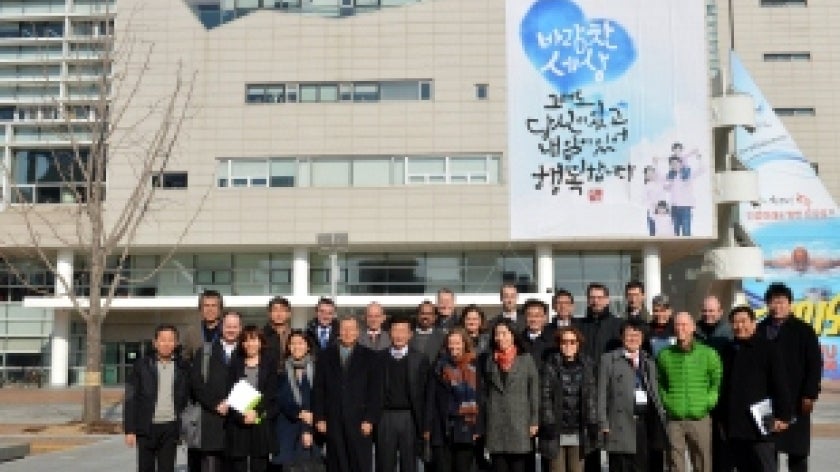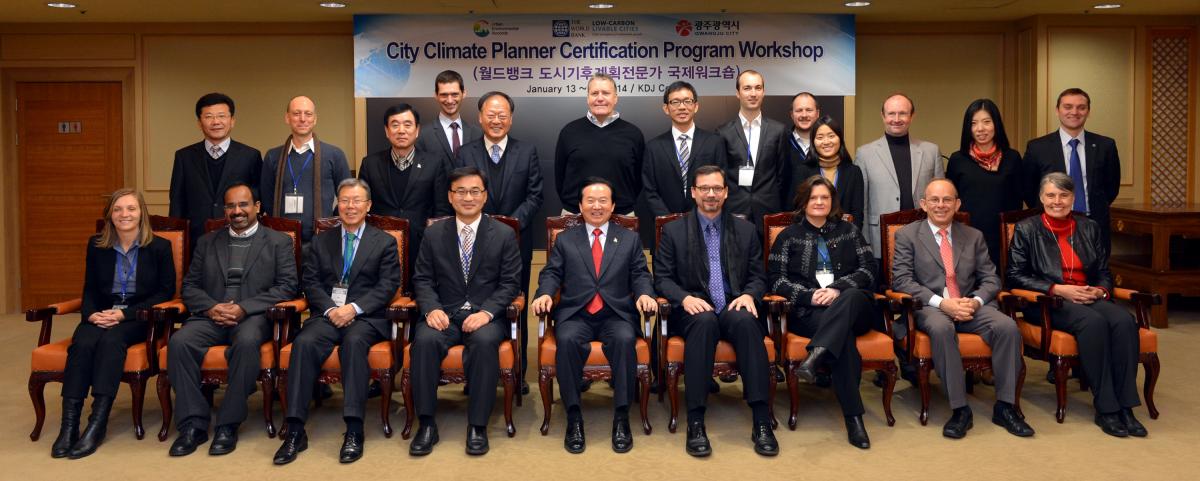
The World Bank’s Urban Development and Resilience Unit recently initiated the City Climate Planner Accreditation Program. The goal of the program is to certify personnel who work on city GHG inventory, low-carbon planning and climate risk assessment. The vision is to get cities ready, so they can build evidence base and transform from low-carbon plans to green investment.
The program’s first stakeholder meeting was held in Gwangju, South Korea, Jan. 13-15th. The 3-day meeting was aimed at discussing methodologies related to city-level GHG inventories, identifying effective personnel certification program, and mapping out the timetable. The meeting was attended by about 25 senior officials, researchers and consultants from UN agencies, think tanks and companies.
Globally, there are 181 cities with emission inventories, 70 cities with some sorts of climate risk studies, and 30 cities with comprehensive climate plans. Given this landscape, establishing a global standard to ensure city GHG inventory, low-carbon planning and climate risk assessment more consistent and comparable seemed urgently important.

Mayor of Gwangju (front row middle) met with the participants
In his welcoming speech the Mayor of Gwangju emphasized the importance of low-carbon development in his city and pledged to make Gwangju energy neutral by 2050. The World Bank Lead Urban Specialist Stephen Hammer highlighted the World Bank’s ambition to lead the global certification program. The Vice President of US Green Building Council, Peter Templeton, laid out all the nuts and bolts related to personnel certification.
Being an important player in the urban/city space, the GEF was invited to participate in the meeting and to introduce its city portfolio under GEF-6 (July 2014–June 2018). The GEF started support for urban transport and urban clean energy in the late 1990s. In the following years, GEF further expanded its urban and transport portfolio. By July 2012, the GEF has supported 50 projects, with a total funding of $292.5 million, focused on actions to reduce greenhouse gas (GHG) emissions in urban transport systems in 90 cities. This funding has leveraged $3.2 billion in co-financing. Built on GEF’s previous experience, it is proposed that GEF-6 establishes two funding channels, Sustainable Cities Integrated Approach and Low-carbon Urban Systems under the Climate Change Mitigation Focal Area, for its sustainable city portfolio. The participants were very interested in what the GEF will offer and eager to work with the GEF.
The meeting ended with an agreement of an ambitious timeline: launch personnel certification on city GHG inventory by the end of 2014 and start climate plan certification by the end of 2015.
Participants at Mudeungsan National Park